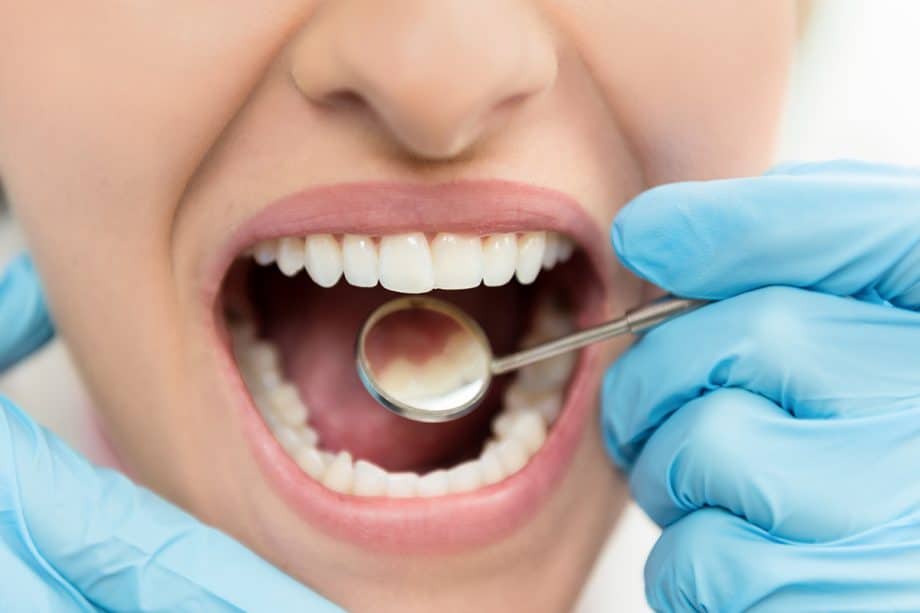When you think about your overall health, you might consider your heart, your lungs, or your diet. But did you know that your oral health plays a crucial role in the well-being of your entire body? At MD Smiles, we believe in a whole-health approach, and that starts with understanding the intricate link between your mouth and your internal organs. It’s a connection that often goes unnoticed, but it has profound implications for your long-term health.
Taking care of your teeth and gums is about much more than just having a bright smile. Your mouth is a gateway to the rest of your body, and what happens there can directly impact your heart, brain, and other vital organs. In this post, we’ll explore this surprising relationship, explain how oral health issues can affect your body, and provide supportive guidance on how you can protect yourself. We want you to feel confident and informed about your health, starting with your smile.
How Your Mouth Affects Your Overall Health
Your mouth is home to a complex ecosystem of bacteria. While many of these bacteria are harmless, some can cause significant problems if they are not managed through proper oral hygiene. When harmful bacteria multiply, they can lead to gum disease (periodontitis), which is an infection and inflammation of the tissues that support your teeth.
The real issue begins when this inflammation and bacteria don't stay contained within your mouth. Your gums have a rich blood supply, and when they are inflamed or bleeding, it creates an entry point for oral bacteria to enter your bloodstream. Once in circulation, these bacteria can travel to any part of your body, triggering inflammation and contributing to a variety of serious health conditions. Think of it as a small, localized problem that can spread and create systemic issues far from the original source. This process is why we place such a strong emphasis on consistent and thorough dental care.
The Inflammation Connection
Inflammation is your body’s natural response to injury or infection. While short-term inflammation is a helpful part of the healing process, chronic inflammation is different. Persistent inflammation, like that caused by ongoing gum disease, keeps your body in a constant state of alert. This chronic inflammatory state has been linked to numerous diseases throughout the body, as it can damage healthy cells, tissues, and organs over time.
By maintaining good oral hygiene and visiting your dentist regularly for checkups and cleanings, you can control the levels of harmful bacteria in your mouth. This helps prevent the chronic inflammation associated with gum disease, thereby reducing the risk of it contributing to other health problems. Our goal is to work with you to keep your mouth healthy, so the rest of your body can be healthy, too.
The Link Between Oral Health and Specific Organs
The connection between oral health and systemic health is not just theoretical; scientific research has identified clear links between poor oral hygiene and specific organ-related diseases. Understanding these connections can empower you to take proactive steps toward protecting your health.
Your Heart Health
One of the most well-documented connections is between gum disease and heart disease. The same bacteria that cause periodontitis can travel through your bloodstream and attach to fatty plaques in your heart's blood vessels. This can contribute to atherosclerosis, or the hardening of the arteries. The inflammation triggered by oral bacteria can also worsen existing heart conditions.
Several studies have shown that people with gum disease have a higher risk of heart attack, stroke, and other cardiovascular events. The bacteria and the body's inflammatory response can cause blood vessels to narrow, increase blood pressure, and make blood clots more likely. By treating gum disease, we can help lower this inflammatory burden and support your cardiovascular health. It's a simple yet powerful way to care for your heart.
Your Brain and Neurological Health
Emerging research suggests a startling link between oral health and brain health, particularly concerning conditions like Alzheimer's disease and dementia. Researchers have found bacteria associated with gum disease, specifically Porphyromonas gingivalis, in the brains of patients with Alzheimer's. It is believed that these bacteria can travel from the mouth to the brain, where they may contribute to the inflammation and brain cell destruction characteristic of the disease.
Furthermore, strokes are another major concern. The inflammation and potential for blood clots caused by oral bacteria can increase the risk of a blockage in the blood vessels leading to the brain, resulting in a stroke. Caring for your gums is a step toward protecting your cognitive function and neurological well-being for years to come.
Other Organs and Systems
The influence of your oral health extends beyond the heart and brain. Here are a few other connections we think are important for you to know:
- Diabetes: The relationship between diabetes and gum disease is a two-way street. People with diabetes are more susceptible to infections, including periodontitis. At the same time, severe gum disease can make it harder to control blood sugar levels, potentially making diabetes worse.
- Respiratory System: Bacteria from your mouth can be inhaled into your lungs, which can lead to respiratory infections like pneumonia, especially in individuals with a weakened immune system.
- Pregnancy: Hormonal changes during pregnancy can make gums more sensitive and prone to inflammation (pregnancy gingivitis). Severe gum disease has also been linked to premature birth and low birth weight, as the oral infection can trigger inflammatory responses that affect the pregnancy.
These connections highlight how truly integrated your oral health is with your overall well-being.
Protecting Your Health Starts in Your Mouth
Knowing about these connections is the first step; taking action is the next. The good news is that protecting your organs from the effects of poor oral health is achievable through simple, consistent habits. We are here to support you on this journey and provide the care you need to feel your best.
The foundation of good oral health is a strong daily routine. This includes:
- Brushing Twice a Day: Brush your teeth for at least two minutes each time, using a soft-bristled toothbrush and fluoride toothpaste. Make sure to clean all surfaces of your teeth.
- Flossing Daily: Flossing is essential for removing plaque and food particles from between your teeth and under the gumline, where your toothbrush can't reach.
- Eating a Balanced Diet: Limit sugary foods and drinks that feed harmful bacteria. A diet rich in vitamins and minerals supports healthy teeth and gums.
While home care is critical, it isn't enough on its own. Professional dental care is a key partner in maintaining your health. Regular dental checkups and cleanings allow our team to remove hardened plaque (tartar) that you can't remove at home. More importantly, these visits allow us to identify and address any potential issues, like the early stages of gum disease, before they become serious problems for your mouth and your body. Our commitment to preventive dentistry is a commitment to your overall health.
Your Partner in Oral Health
Your body is a remarkable, interconnected system, and your oral health is a vital piece of that puzzle. The health of your teeth and gums has a direct and significant impact on your heart, brain, and other essential organs. By understanding this relationship and taking proactive steps to maintain good oral hygiene, you are making a powerful investment in your long-term wellness.
At MD Smiles, we want you to feel confident about the decisions you make for your health. We are dedicated to providing compassionate care and clear information to help you protect your smile and your body. If you have any concerns about your oral health or want to learn more, we are always here to listen and help.
Frequently Asked Questions About the Connection Between Your Teeth and Organs
Can brushing my teeth really prevent a heart attack?
While it's not a direct cause-and-effect, maintaining good oral hygiene significantly reduces your risk. Brushing and flossing help prevent gum disease, which lowers the inflammation and bacterial load in your body. This, in turn, reduces a major risk factor associated with heart disease, stroke, and heart attacks.
How often should I see a dentist to protect my overall health?
For most people, we recommend a dental checkup and cleaning every six months. These visits are crucial for removing tartar and catching early signs of gum disease. If you have specific health conditions, like diabetes or heart disease, we might recommend more frequent visits to ensure your oral health is well-managed.
At MD Smiles, we are dedicated to providing compassionate, comprehensive dental care tailored to your unique needs. Our welcoming team is committed to creating a comfortable environment where you feel heard and supported throughout your oral health journey. From preventive care to advanced treatments, we focus on empowering you with the knowledge and tools necessary to achieve a lifetime of healthy, confident smiles. Contact us today to schedule an appointment.

